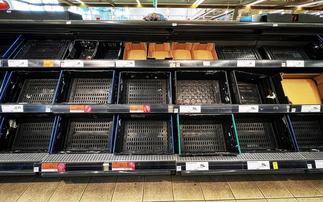With many farmers yet to go organic, demand may soon exceed supply
Despite recent public commitments made by big businesses, the cotton industry is facing a struggle to increase its global production of organic produce. Organic cotton - which can be manufactured to the same texture and quality as standard cotton - is grown without the necessity of any pesticides or fertilisers, avoids a significant drain on water supply and soil, and increases the overall well-being of farmers and pickers. The eco-benefits are clear, but organic cotton still faces difficulties.
Top companies such as H&M and C&A are leading the charge for the organic cotton trade revolution by making stout commitments to use 100 per cent organic cotton by 2020. Swedish fashion giant H&M increased its use of organic cotton by 29 per cent in 2013, a rise from 7.8 per cent in 2012.The company has also invested US $2.7m, in the Better Cotton Initiative's Fast Track Program.
However it is not just these big brands making a change. There are a slew of smaller organic companies such as Zen Bedrooms, which offer sustainably resourced mattresses, clothes and pillow cases.
Increasing demand is one thing, but being able to meet that demand is quite another. In a document recently released by Textile Exchange, figures have shown that the overall production of natural fibres dropped by three per cent in 2013; standard cotton fell by 4.1 per cent last year.
The deficiency of good quality cotton suppliers that are producing cotton without GMO (genetically modified organism) is clear to see. Despite the fact that only approximately one per cent of the cotton manufactured is organic, demand will soon likely exceed supply. One hurdle to the rise in organic cotton is the fact that many farmers seemingly lack the business savvy and will required to go organic, as a significant amount of expert knowledge and verification of the organic status is required.
An aspiration for improvement
It is generally hoped that huge markets like China and the USA will step up organic cotton production, due to the continued efforts by organisations such as Textile Exchange and the Better Cotton Standard System. The overall aim is to equip farmers with the tools and know-how, reducing water consumption and eradicating the use of pesticides.
These efforts to increase the supply of organic cotton are of paramount importance, as Textile Exchange's Managing Director LaRhea Pepper states, "We are looking holistically at the organic cotton supply chain. Organic cotton farmers are the beginning of a long value chain and surveying the entire system is the best way to get an inclusive story." Whether the industry will be able to cope with a higher demand is, however, still to be seen.







